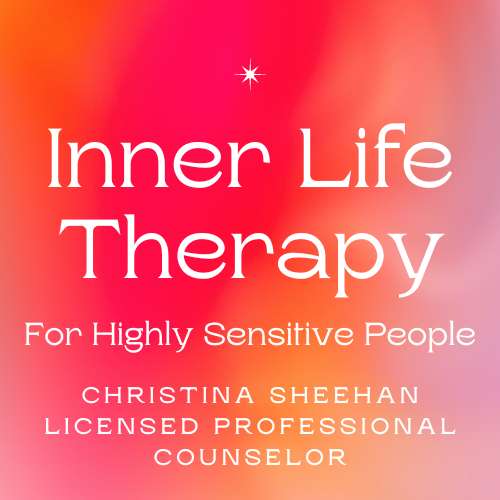The Power of Play For Highly Sensitive People
Inner Life Therapy is a Portland, Oregon based psychotherapy practice specializing in helping highly sensitive people. In the process of helping transform the ongoing anxiety and self-blame of highly sensitive people into clarity and self-esteem, play gives us a break, allows us to just be, and helps defeat perfectionistic thinking.
Highly sensitive people (HSPs) are emotional people, greatly affected by the emotions of others, music, art, and even emotional TV commercials. The ability to think and feel deeply is both the superpower, and the curse of HSPs, who are highly empathetic and sensitive to subtleties, easily overstimulated, and tender hearted.
Play helps the body process emotions, gets us out of our heads and into our bodies. Because HSPs find it difficult to be playful, or even sometimes to look forward to joyful experiences, we need to give ourselves permission to just be, to play, to recharge our batteries and seek some fun!
What is play? Defined as “a state of mind that one has when absorbed in an activity that provides enjoyment and a suspension of sense of time.” In play, we can lose ourselves in an activity we find pleasant, lose our inhibitions, behave in a free and spontaneous manner, and take life less seriously. Because HSPs are frequently inherently serious, it is very important to take life less seriously and enjoy the benefits of play.
Adult play can lead to greater mental, physical, and relational health. Cultivating playfulness helps HSPs learn to modulate their seriousness, process emotions through our body, accept ourselves, and ensure we have reserves set aside in our “bank”, and an abundance to offer. Each of us likes to play in our own unique way. Many of us have forgotten how to play. Think about what you loved doing as a kid, and leave plenty of time to create opportunities for spontaneity to do what you most enjoy.
Because HSPs don’t enjoy feeling rushed, they may require more time for transitions between activities. While it may seem odd to schedule time for playfulness and spontaneity, we are more likely to accomplish something we have scheduled time for, and have made a commitment to. Knowing your preferred style of play can help you choose activities that provide fun without triggering anxiety. For instance, some HSPs may enjoy physical activities, classes, groups or competitions. Others are less inclined to enjoy activities which are loud, long, or involve strong emotions.
The benefits of play for HSPs are numerous. Getting out of our heads and into our bodies helps the body process emotions, mitigates perfectionism, and gives a much needed break to recharge our batteries and just be. As children and animals are typically much more playful than adults, our connections to them and to nature may help us find new ways to play. Moving our bodies for the fun of it, connecting with others in shared play, and nurturing creativity can help us lose ourselves in play.
Laughing at ourselves and at life helps us be more playful, feel less depressed, connect with and strengthen our connections to others. Resolve to laugh daily, often, and find compassionate forms of humor. Set an intention to play!
